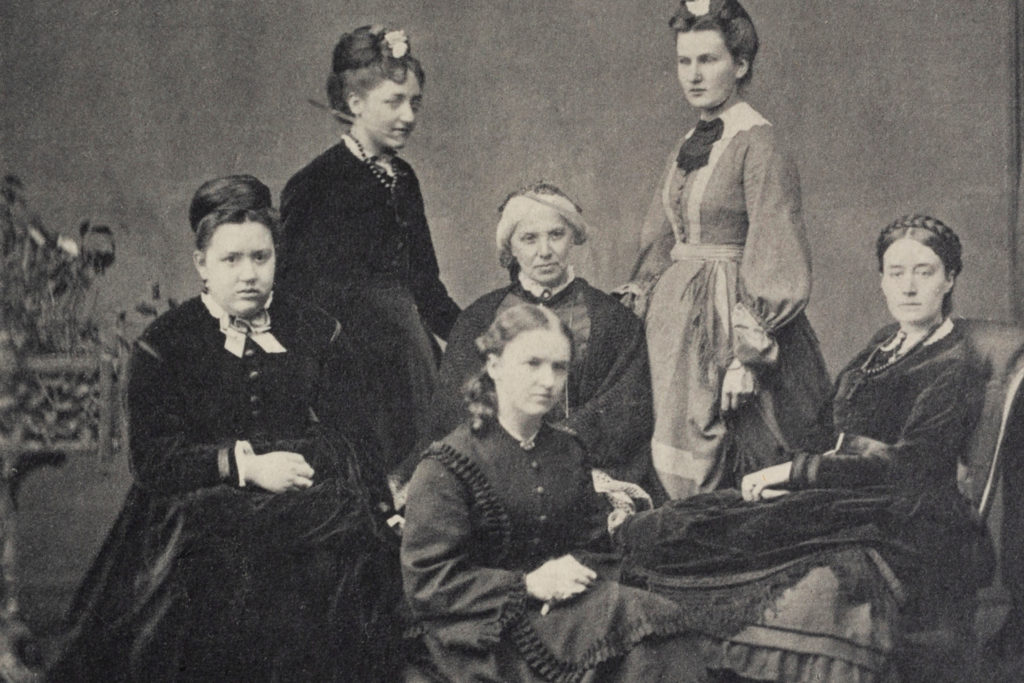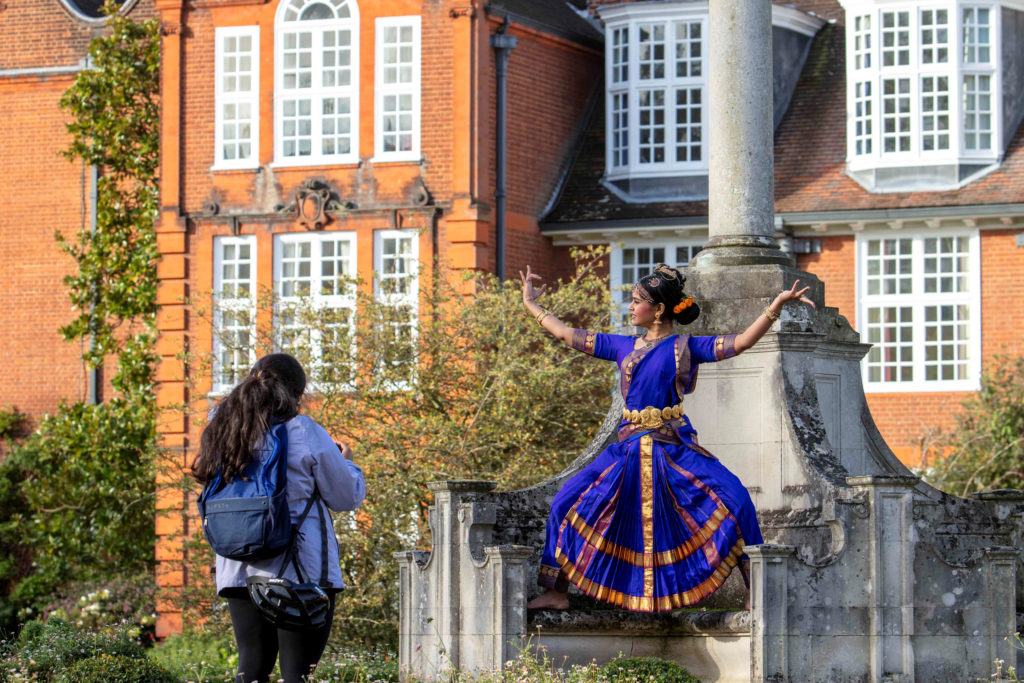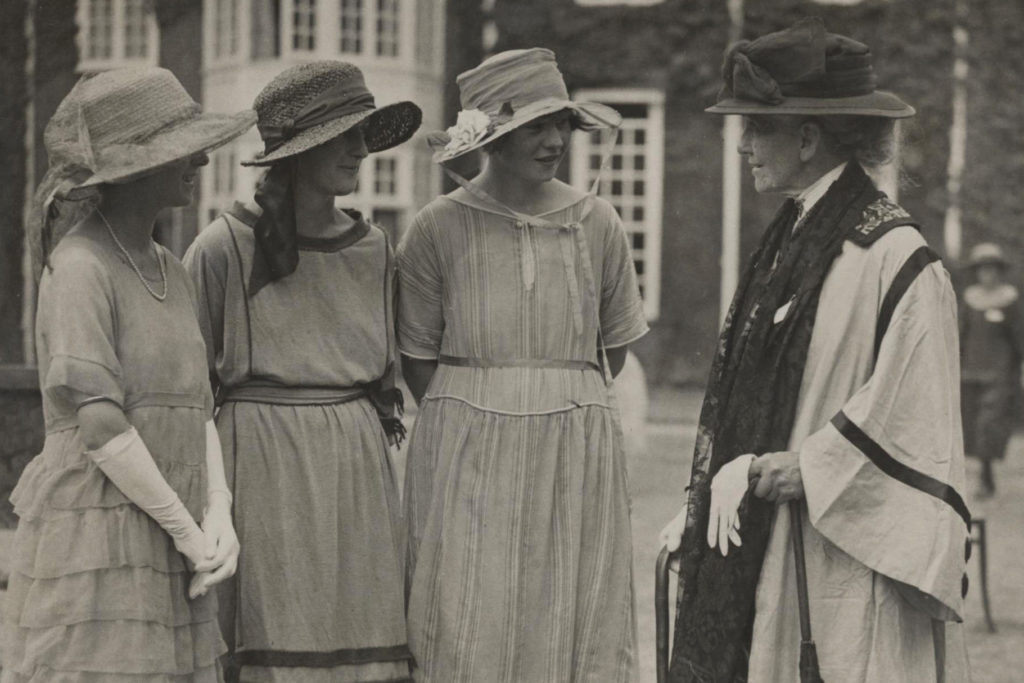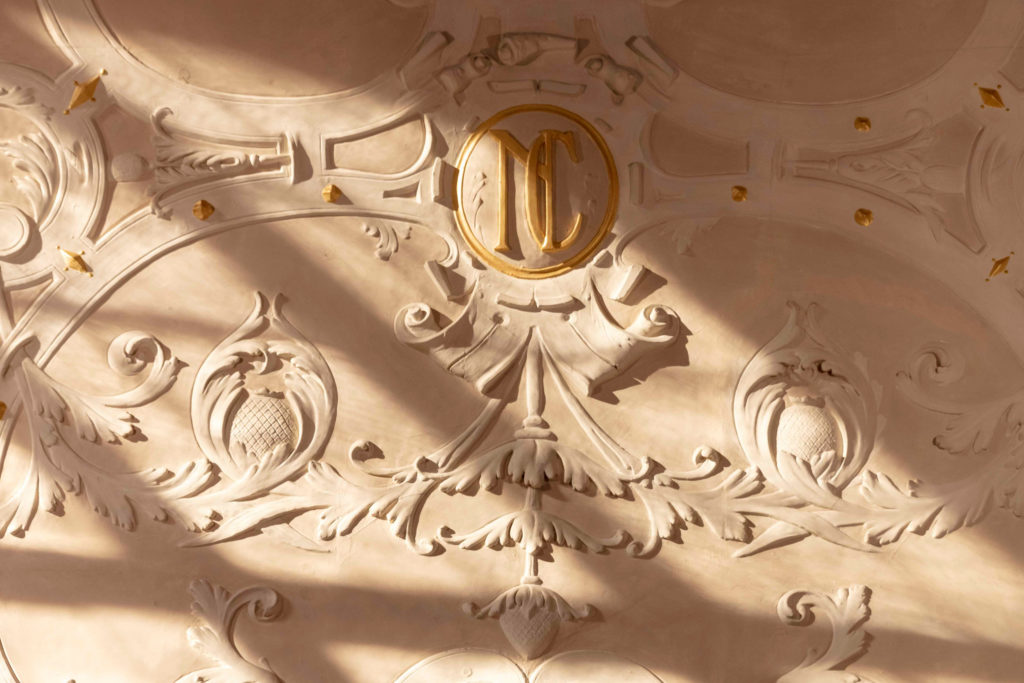Peggy Pollard (NC 1922)
1904–1996
Peggy Gladstone was the first woman to take first class Honours in Oriental Languages. Bill Stickers was the first person to arrive, masked, at the National Trust headquarters, with a large donation and a demand to save the Cornish coast.
‘I ‘ave always preferred to be enonymous, and I done wot I could while I could’, Peggy, in her persona of Bill Stickers, observed.
What she could do was extraordinary. She was a determined campaigner, a poet, a scholar, a highly-practical mystic and a Cornish-language bard.
Shaking off a repressive upbringing, she arrived at Newnham ready to study and explore life. She was full of practical japes, a lover of disguise and improvisation. Meanwhile, focused study in the library gave her a First in Sanskrit and Pali.
After marrying Cornishman Frank Pollard, she would live the rest of her life in Cornwall, a region for which she developed a personal and academic passion. She was central to the study and revival of Cornish language. In 1952, she would receive her PhD, and continued to publish on Sanskrit texts.
But Peggy Pollard is best remembered today as the leader of Ferguson’s Gang, the group of women determined to save English heritage and coastline through the National Trust. Peggy’s sense of fun and drive so evident at Newnham flourished: meetings took place in fancy dress, minutes were firmly light-hearted and all members had an alias. (No doubt many meetings would be improved by having a Bill Stickers in the Chair!) When the Gang made their donations to the Trust, they arrived masked and in disguise – which resulted in excellent publicity for the cause. Many donations came directly from Peggy, who had inherited a considerable sum from the Gladstone family. Over a decade, the Gang rescued seventeen properties and sites for the nation.
She was a woman with a zest for life in all its aspects: good food, music, scenery and company. While her marriage was asexual, she herself had relationships with women and men.
As she aged, Peggy’s energy was not lost. She became a Roman Catholic with a deep faith and an active social conscience. She began giving away her worldly possessions, and lived cheerfully in one room inscribed with quotations from great thinkers, from St Teresa of Avila to Aldous Huxley.
To read more about Peggy Pollard’s extraordinary and fascinating life, see Sue Limb’s essay in Breaking Bounds: Six Newnham Lives.






